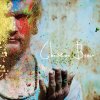

 Christian Brock "Waiting Waves" 2019
Christian Brock is a young up and coming fingerstyle guitarist from Denmark. From his style of ambient, soulful music, one would not suspect that he began his musical career playing hardcore death metal, although
he punctuates his serene melodies with percussive techniques like tapping and slapping. Waiting Waves is his first full length album (he released a solo EP, "The Ride," in 2015). Throughout the album he exhibits
great sensitivity and attention to tone and uses flurries of harmonics and lightening fast pull-offs ingeniously ("Sara,""A Quiet Smile") and coaxes a range of sonorities, from rumbling bass to sweet tenor notes
("Be Here," and "Wish You a Mountain"). From his song titles it's apparent he's evoking nature and the natural world: There is the serenity of a stream, the majesty of mountains, the contemplation of a deep well.
On "Rain," one of the prettiest and most varied, he begins with a tolling chord that somehow calls to mind sheets of rain against a window while a series of notes imitate individual drops. The album as a whole is
largely undifferentiated; one subtle piece flows into the next as if opening from one chamber to the next, rather than functioning as separate songs, the tempo virtually unchanged. This is both a strength and a
weakness; a strength because it sets and sustains a particular mood, and a weakness because it can lull the listener away from full attentiveness. Brock breaks out from this formula with the striking pieces, "Tide"
and the title track. "Tide" is inventive, with layers of sound and repeated motifs perhaps intended to capture the overlapping of water as the tide shifts, ending on a series of deep rumbling chords. The lovely melody
of "Waiting Waves" is punctuated with tinkling notes that bring to mind shards of light on breaking waves, the music relaxed and meditative, like the state of mind a surfer enters when lolling on a gentle swell
awaiting a wave. With his emotional resonance, crystalline playing, and evocative compositions, Brock is very much a musician to watch.
©
Céline Keating
Christian Brock "Waiting Waves" 2019
Christian Brock is a young up and coming fingerstyle guitarist from Denmark. From his style of ambient, soulful music, one would not suspect that he began his musical career playing hardcore death metal, although
he punctuates his serene melodies with percussive techniques like tapping and slapping. Waiting Waves is his first full length album (he released a solo EP, "The Ride," in 2015). Throughout the album he exhibits
great sensitivity and attention to tone and uses flurries of harmonics and lightening fast pull-offs ingeniously ("Sara,""A Quiet Smile") and coaxes a range of sonorities, from rumbling bass to sweet tenor notes
("Be Here," and "Wish You a Mountain"). From his song titles it's apparent he's evoking nature and the natural world: There is the serenity of a stream, the majesty of mountains, the contemplation of a deep well.
On "Rain," one of the prettiest and most varied, he begins with a tolling chord that somehow calls to mind sheets of rain against a window while a series of notes imitate individual drops. The album as a whole is
largely undifferentiated; one subtle piece flows into the next as if opening from one chamber to the next, rather than functioning as separate songs, the tempo virtually unchanged. This is both a strength and a
weakness; a strength because it sets and sustains a particular mood, and a weakness because it can lull the listener away from full attentiveness. Brock breaks out from this formula with the striking pieces, "Tide"
and the title track. "Tide" is inventive, with layers of sound and repeated motifs perhaps intended to capture the overlapping of water as the tide shifts, ending on a series of deep rumbling chords. The lovely melody
of "Waiting Waves" is punctuated with tinkling notes that bring to mind shards of light on breaking waves, the music relaxed and meditative, like the state of mind a surfer enters when lolling on a gentle swell
awaiting a wave. With his emotional resonance, crystalline playing, and evocative compositions, Brock is very much a musician to watch.
©
Céline Keating
 Tom Gamble "Move" 2019
British guitarist Tom Gamble's new CD Move is a potpourri of genres and composers; only one of the 12 songs is an original. Gamble takes on the likes of Chick Corea's "Spain," thumbpicker extraordinaire Jerry
Reed's "Jiffy Jam," the jazz standard "All of Me," and for good measure, Domenico Scarlatti's "Sonata K 206." No matter the style, Gamble shows off keen musicality and some solid chops. The original "Just a Folk
Song" is a measured, languid ballad with only Gamble's nylon string guitar, chords with a pleasing melody overdubbed. Most of the songs are ensembles with various groupings of percussion, piano, cello, and vocals.
The sweet traditional tune "Wild Mountain Thyme" is played slowly enough to let its beauty seep into your ears in all the right ways. Billy Taylor's "I Wish I Knew How it Would Feel to be Free" is a rollicking up tempo
piece with ensemble help. Gamble does a commendable job with the Scarlatti Sonata, and he ends the disk with one of John Dowland's lute works, "Mrs. Wilder's Jump," a relatively lively piece from Dowland's repertoire,
known for its melancholy. Move can't really fit into any single category of guitar music, but it is all good guitar music, an enjoyable listen for anyone with ears to hear.
©
Kirk Albrecht
Tom Gamble "Move" 2019
British guitarist Tom Gamble's new CD Move is a potpourri of genres and composers; only one of the 12 songs is an original. Gamble takes on the likes of Chick Corea's "Spain," thumbpicker extraordinaire Jerry
Reed's "Jiffy Jam," the jazz standard "All of Me," and for good measure, Domenico Scarlatti's "Sonata K 206." No matter the style, Gamble shows off keen musicality and some solid chops. The original "Just a Folk
Song" is a measured, languid ballad with only Gamble's nylon string guitar, chords with a pleasing melody overdubbed. Most of the songs are ensembles with various groupings of percussion, piano, cello, and vocals.
The sweet traditional tune "Wild Mountain Thyme" is played slowly enough to let its beauty seep into your ears in all the right ways. Billy Taylor's "I Wish I Knew How it Would Feel to be Free" is a rollicking up tempo
piece with ensemble help. Gamble does a commendable job with the Scarlatti Sonata, and he ends the disk with one of John Dowland's lute works, "Mrs. Wilder's Jump," a relatively lively piece from Dowland's repertoire,
known for its melancholy. Move can't really fit into any single category of guitar music, but it is all good guitar music, an enjoyable listen for anyone with ears to hear.
©
Kirk Albrecht
 Jamie Anderson "The Truth Appears" 2019
Jamie Anderson's songwriting lives in a world of contrasts: whimsy set against thoughtfulness, the uncertain give-and-take of relationships juxtaposed with self-assured introspection, bittersweet memory backdropped to
a merrily blooming future. She captures a kick-up-your-heels country vibe on "Man in Black" and the less humorous but ironic "Out of Time," which features one of her trademark zingers to an ex - "your love cost me big,
breaking up was free." But many of the songs on her CD The Truth Appears - "Fade to Blue," "Home to Me," "Hold My Breath" - plumb deep with the help of a solemn minor key. Contrast works well in visual art, and it
also works very well for Jamie Anderson's music.
©
Alan Fark
Jamie Anderson "The Truth Appears" 2019
Jamie Anderson's songwriting lives in a world of contrasts: whimsy set against thoughtfulness, the uncertain give-and-take of relationships juxtaposed with self-assured introspection, bittersweet memory backdropped to
a merrily blooming future. She captures a kick-up-your-heels country vibe on "Man in Black" and the less humorous but ironic "Out of Time," which features one of her trademark zingers to an ex - "your love cost me big,
breaking up was free." But many of the songs on her CD The Truth Appears - "Fade to Blue," "Home to Me," "Hold My Breath" - plumb deep with the help of a solemn minor key. Contrast works well in visual art, and it
also works very well for Jamie Anderson's music.
©
Alan Fark
 Avanti Guitar Trio "Ladder to Light" 2019
Each member of Avanti-Jason Deroche, Julie Goldberg, Wesley Hixson-can hold the stage as a soloist on his or her own. As a trio, they synergize and become more than the sum of their parts. Couple that with the
wonderful arrangements of classical guitar standards and original competitions, and they are glorious. An ensemble with instruments all pitched the same risks creating mud, as frequencies tangle and step on each
other's lines. But Avanti, through thoughtful use of dynamics and the varied timbres of the classical guitar, these three twine like a Celtic knot. The first piece, "Tango Diabolico," written by the trio's Wesley
Hixson, is worth the price of entry: it lives up to its name in fiery intensity, cooled by a middle section that sounds like its laced with laudanum, before returning us to the devilish business at hand. The bulk of
the tracks are a lovely, lively arrangement of Bizet's "Carmen Suite No. 1." Another Hixson composition, "Tidal Light," is well-named, filled with flowing arpeggios and harmonic currents. The final three tracks are
likewise wonderful: 20th century composer Fernando Bustamente's "Misionera" comes from the very heart of Spanish guitar; Ronald Pearl, a contemporary composer, contributes "Jacob's Ladder," an appropriately dreamy piece
that soars ever upward with the guitarists attaining harp-like sonorities; Manuel de Falla's "Ritual Fire Dance" closes out the disc, leaving the veins pulsing with a sense of danger and very real excitement.
©
Brian Clark
Avanti Guitar Trio "Ladder to Light" 2019
Each member of Avanti-Jason Deroche, Julie Goldberg, Wesley Hixson-can hold the stage as a soloist on his or her own. As a trio, they synergize and become more than the sum of their parts. Couple that with the
wonderful arrangements of classical guitar standards and original competitions, and they are glorious. An ensemble with instruments all pitched the same risks creating mud, as frequencies tangle and step on each
other's lines. But Avanti, through thoughtful use of dynamics and the varied timbres of the classical guitar, these three twine like a Celtic knot. The first piece, "Tango Diabolico," written by the trio's Wesley
Hixson, is worth the price of entry: it lives up to its name in fiery intensity, cooled by a middle section that sounds like its laced with laudanum, before returning us to the devilish business at hand. The bulk of
the tracks are a lovely, lively arrangement of Bizet's "Carmen Suite No. 1." Another Hixson composition, "Tidal Light," is well-named, filled with flowing arpeggios and harmonic currents. The final three tracks are
likewise wonderful: 20th century composer Fernando Bustamente's "Misionera" comes from the very heart of Spanish guitar; Ronald Pearl, a contemporary composer, contributes "Jacob's Ladder," an appropriately dreamy piece
that soars ever upward with the guitarists attaining harp-like sonorities; Manuel de Falla's "Ritual Fire Dance" closes out the disc, leaving the veins pulsing with a sense of danger and very real excitement.
©
Brian Clark
 Lucas Choi Zimbel "Tempered Tantrum" 2019
Lucas Choi Zimbel shows himself to be a shrewd observer of life on his 13-track Tempered Tantrum. Backed by his steady, folk-blues-influenced fingerstyle guitar, Zimbel takes precise aim at our society's many foibles,
skewering political fat cats, conspicuous consumption, rude behavior, overzealous police, the justice system and the economy. With a poet's sensibility and voice that leans more toward the spoken word than song, Zimbel
is as sincere as he is alarmed: "Breaking news, now the news is broke / The bent rules won over the fools / Master of illusion, exploiting the confusion." He pulls few punches, unveiling an unerring gaze that peers through
the haze: "If I'm never happy with what I have / I'm better off without anything / Well, the more we have, the less we are / The less time we have to be ? So let go of it all / Only then can you be set free." Though well on
the south side of middle age, his Shakespearean ear for couplets is as wise as the mountains, and you can feel his ache of the ages: "Meditate on misery, all that long lost potential / And on the depth of sorrow, which is
exponential." If all were right with the world — and it's clearly nowhere near that — Zimbel would be a standing room only attraction in every coffee house in the nation. And well he should be.
©
Fred Kraus
Lucas Choi Zimbel "Tempered Tantrum" 2019
Lucas Choi Zimbel shows himself to be a shrewd observer of life on his 13-track Tempered Tantrum. Backed by his steady, folk-blues-influenced fingerstyle guitar, Zimbel takes precise aim at our society's many foibles,
skewering political fat cats, conspicuous consumption, rude behavior, overzealous police, the justice system and the economy. With a poet's sensibility and voice that leans more toward the spoken word than song, Zimbel
is as sincere as he is alarmed: "Breaking news, now the news is broke / The bent rules won over the fools / Master of illusion, exploiting the confusion." He pulls few punches, unveiling an unerring gaze that peers through
the haze: "If I'm never happy with what I have / I'm better off without anything / Well, the more we have, the less we are / The less time we have to be ? So let go of it all / Only then can you be set free." Though well on
the south side of middle age, his Shakespearean ear for couplets is as wise as the mountains, and you can feel his ache of the ages: "Meditate on misery, all that long lost potential / And on the depth of sorrow, which is
exponential." If all were right with the world — and it's clearly nowhere near that — Zimbel would be a standing room only attraction in every coffee house in the nation. And well he should be.
©
Fred Kraus
 Ken Bonfield "Parting Gifts" 2018
The steel string guitar has seemingly limitless options for tunings, color, and technique. While many modern steel string players employ various percussive techniques, Ken Bonfield on his latest CD, Parting Gifts, limits
himself to straight up fingerpicking, but often with a twist: Bonfield utilizes reentrant tuning, where the guitar has four treble strings instead of the usual three. This lends an extra shimmer to his guitar sound. One of
those songs is "Lover's Lament," a truly sad, haunting melody with string accompaniment. Tim Crouch and Raymond Gonzalez lend their obvious talents to many of the songs on a variety of instruments, such as the lovely "Seneca"
where Crouch's mandolin and violin accent ever so gently Bonfield's guitar. Most of the songs I would say are reflective in nature (like "Sunday Morning", but the ensemble-driven "Caged" adds another level of intensity and
movement. "Six String Salvation" is a brief up tempo cascade. The disk closes with the title cut, "Parting Gifts," again using mandolin and violin to augment Bonfield's skilled fingerpicking. Bonfield wrote or co-wrote all
13 tracks on Parting Gifts, and he shows a good sense of melodic development in his writing, and nuanced playing all through the CD.
©
Kirk Albrecht
Ken Bonfield "Parting Gifts" 2018
The steel string guitar has seemingly limitless options for tunings, color, and technique. While many modern steel string players employ various percussive techniques, Ken Bonfield on his latest CD, Parting Gifts, limits
himself to straight up fingerpicking, but often with a twist: Bonfield utilizes reentrant tuning, where the guitar has four treble strings instead of the usual three. This lends an extra shimmer to his guitar sound. One of
those songs is "Lover's Lament," a truly sad, haunting melody with string accompaniment. Tim Crouch and Raymond Gonzalez lend their obvious talents to many of the songs on a variety of instruments, such as the lovely "Seneca"
where Crouch's mandolin and violin accent ever so gently Bonfield's guitar. Most of the songs I would say are reflective in nature (like "Sunday Morning", but the ensemble-driven "Caged" adds another level of intensity and
movement. "Six String Salvation" is a brief up tempo cascade. The disk closes with the title cut, "Parting Gifts," again using mandolin and violin to augment Bonfield's skilled fingerpicking. Bonfield wrote or co-wrote all
13 tracks on Parting Gifts, and he shows a good sense of melodic development in his writing, and nuanced playing all through the CD.
©
Kirk Albrecht